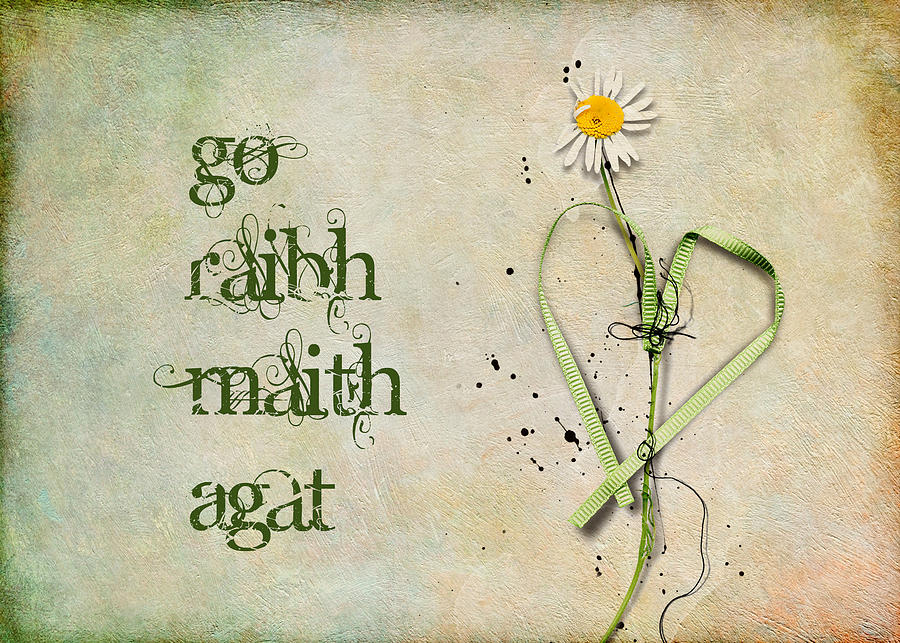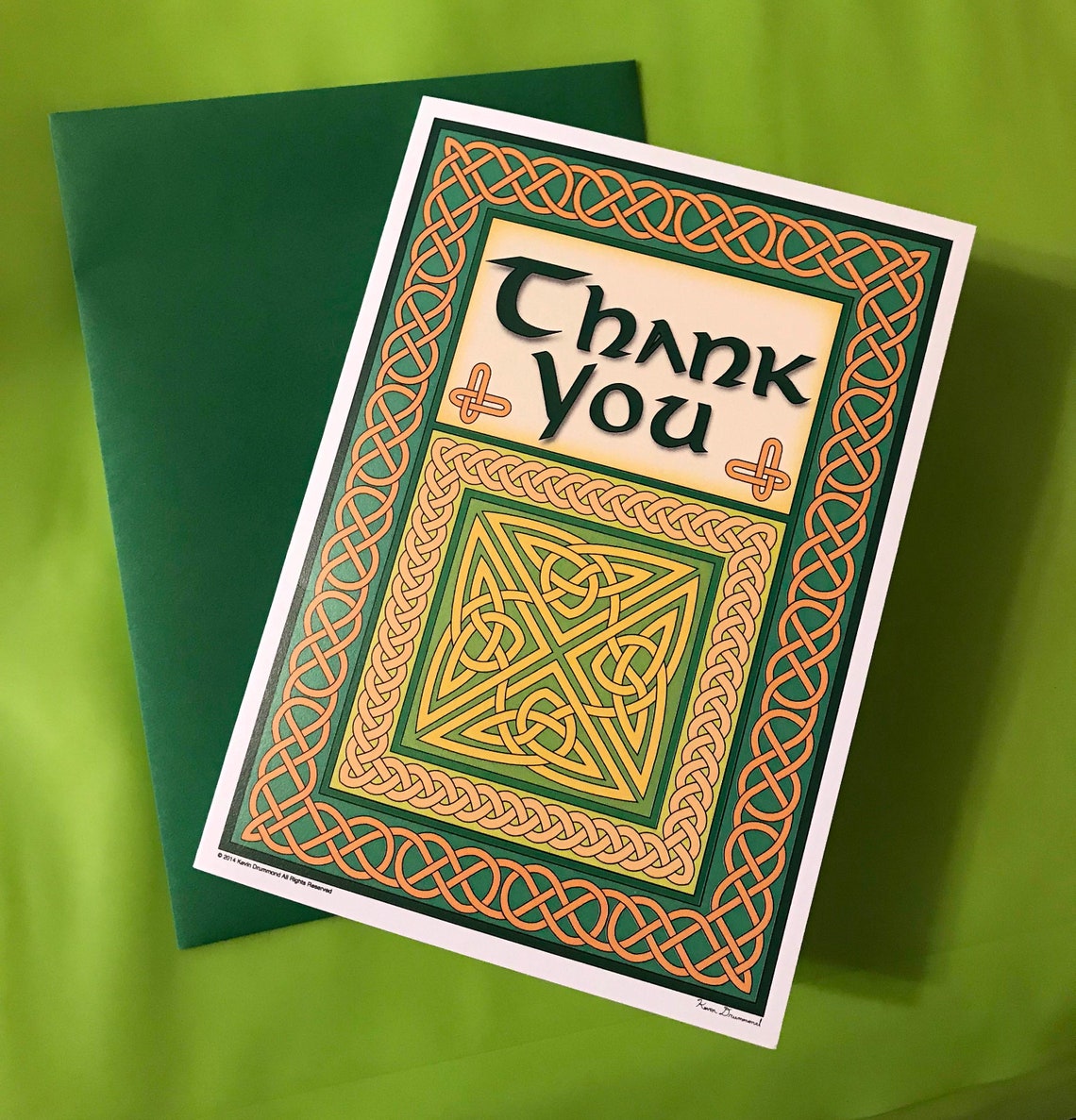Learn How To Say "Thank You" In Irish: Your Ultimate Guide
Have you ever wondered how to express gratitude in a language that resonates with centuries of history and cultural richness? Learning to say "thank you" in Irish is not just about mastering a phrase; it's about opening a door to a deeper understanding of the Irish people and their traditions.
The Irish language, also known as Gaelic or Gaeilge, is a treasure trove of nuanced expressions, each carrying a unique weight and meaning. Beyond the simple translation, the act of saying "thank you" in Irish is a gesture that embodies respect, warmth, and a genuine connection with the community. This article will explore the different ways to express gratitude in the Irish language, from formal phrases to casual slang, and delve into the cultural significance behind each expression.
Whether you're navigating the rolling hills of the countryside, conversing in a bustling pub, or attending a formal event, knowing how to express your thanks in Irish will undoubtedly enrich your experience and create lasting connections. So, let's embark on this journey into the beautiful world of Irish expressions of gratitude.
Here's a table showcasing the key phrases and their meanings, offering a comprehensive guide to expressing thankfulness in Irish:
| Phrase | Pronunciation (Approximate) | Meaning | Usage |
|---|---|---|---|
| Go raibh maith agat | Guh rev mah ah-gut | Thank you | The most common and versatile way to say thank you; suitable for almost any situation. |
| Mle buochas | Mee-leh bwee-ukh-us | A thousand thanks / Thank you very much | Adds emphasis and sincerity; suitable for expressing greater gratitude. |
| Go raibh mle maith agat | Guh rev mee-leh mah ah-gut | May there be a thousand goodnesses by you / Thank you very much | A more elaborate and heartfelt way of saying thank you, literally meaning "may a thousand good things come to you". |
| Buochas | Bwee-ukh-us | Thank you | Formal way of expressing gratitude |
The core phrase, "Go raibh maith agat," is the cornerstone of expressing thanks in Irish. The literal translation of this phrase reveals a beautiful sentiment: "May goodness be with you." It's a simple yet profound way of acknowledging someone's kindness, offering a blessing in return. Think of it as a verbal hug, a warm gesture of appreciation, easily adaptable to various situations, from thanking a shopkeeper to expressing gratitude for a friend's help.
When you find yourself wanting to express a deeper level of appreciation, "Mle buochas" is your go-to phrase. Literally meaning "a thousand thanks," it magnifies your gratitude, emphasizing the depth of your appreciation. Using "Mle buochas" is akin to saying "thank you very much" or "a thousand thanks".
For those occasions when you truly want to express your heartfelt appreciation, "Go raibh mle maith agat" is the perfect choice. Translating to "May there be a thousand goodnesses by you," this phrase encapsulates a blessing, expressing a wish for good things to come to the person you are thanking. It is a lovely way to demonstrate your respect and understanding of Irish customs when engaging with formal situations or meeting people for the first time.
Then, we have "Buochas". This simple word, standing alone, directly translates to "thank you" in Irish. While not as widely used as "Go raibh maith agat," "Buochas" is still a perfectly acceptable way to express your thanks, especially in a more formal context. It's a straightforward, elegant way to acknowledge someone's help or kindness.
However, it is not considered a popular expression or common courtesy in the irish language.
The significance of using the Irish language transcends mere formality; it's a means of fostering a deeper connection with the culture and its people. When you use "Go raibh maith agat" or any of its variations, you are not merely uttering words; you are participating in a long-standing tradition of respect and appreciation. You are communicating your awareness of the rich cultural heritage that underpins the Irish language.
Moreover, using Irish, or Gaeilge, offers a more intimate and personal way of relating to the community. It shows respect and appreciation, demonstrating a genuine interest in the local culture. Whether you are a tourist, an expatriate, or a new resident, speaking a few phrases in Irish is a gesture that is warmly received and highly appreciated.
If you're eager to learn how to say many thanks in Irish, youre in the right place. As we've explored, there are numerous ways to express gratitude, each offering a unique flavor and degree of emphasis. From the straightforward Mle buochas (thank you very much) to the more intricate Go raibh mle maith agat (may there be a thousand goodnesses by you), the Irish language provides a vibrant palette for your expressions of thanks.
For casual, everyday interactions, you may also encounter informal phrases. Although not explicitly mentioned in the original content, the Irish language, like any other, has its share of slang and informal expressions. These variations often reflect the regional dialects and the social context, offering a more personalized way to convey gratitude.
The Irish language is referred to in different ways. In Ireland, we say the irish language, or just irish. With bitesize irish, you get to learn to speak irish in easy bitesize portions at your own pace. Whether you're new to the language or are brushing up on your skills, these structured lessons are designed to give you a practical understanding of the language.
The Irish language is referred to in different ways. In Ireland, we say the irish language, or just irish. With bitesize irish, you get to learn to speak irish in easy bitesize portions at your own pace. This approach makes it easier to learn the basic phrases to express yourself with confidence.
The annual Irish Blog Awards, which were held in The Academy on Dublins Abbey Street on Thursday, October 5th, 2017, provide a glimpse into the modern Irish scene. This event, where I was honoured to be a finalist in the vlog category for my YouTube channel, highlights the vibrant and dynamic nature of the Irish creative community. Such events underscore the importance of celebrating and appreciating cultural contributions.
The Irish language, often referred to as Gaeilge, is a rich and beautiful language spoken primarily in Ireland. It has various dialects and regional variations, but for the purpose of this guide, we will focus on the standard Irish language. This focus allows us to provide a clear and accessible introduction to the most widely understood expressions of gratitude.
Remember, using the Irish language has a unique way of creating a connection and showing your enthusiasm for Irish culture. Using a few basic phrases is a small gesture with significant meaning.
While the specific origin of the phrases for expressing gratitude may be difficult to pinpoint precisely, the underlying sentiment of appreciation and the desire to show respect are universal human values that find expression in all languages. Therefore, while the phrases and their literal translations may vary, the core concept of saying "thank you" remains consistent.
In formal situations, such as when interacting with professionals, officials, or in professional or official capacity, it is important to utilize the more traditional and respectful forms. Using these formal expressions demonstrates a sense of respect, which is highly valued in the Irish culture. It is a clear indicator of one's awareness and understanding of the local customs, creating a positive impression.
On the other hand, in informal settings, like with friends or in everyday interactions, you have the flexibility to use more casual expressions, or even incorporate slang, to convey appreciation. When you are among friends, or when someone helps you with directions, your response can be more relaxed and friendly.
Ireland, with its historical landscape and rich culture, provides a unique backdrop for learning the Irish language. To delve further into the nuances and intricacies of Irish phrases and usage, consult online resources, language courses, and books. This will enhance your ability to express gratitude in the most appropriate and meaningful manner.
Here is a link to an authentic website for reference to learn more about the Irish language and culture: Gaeilge.ie


